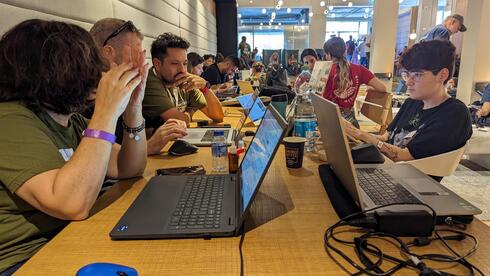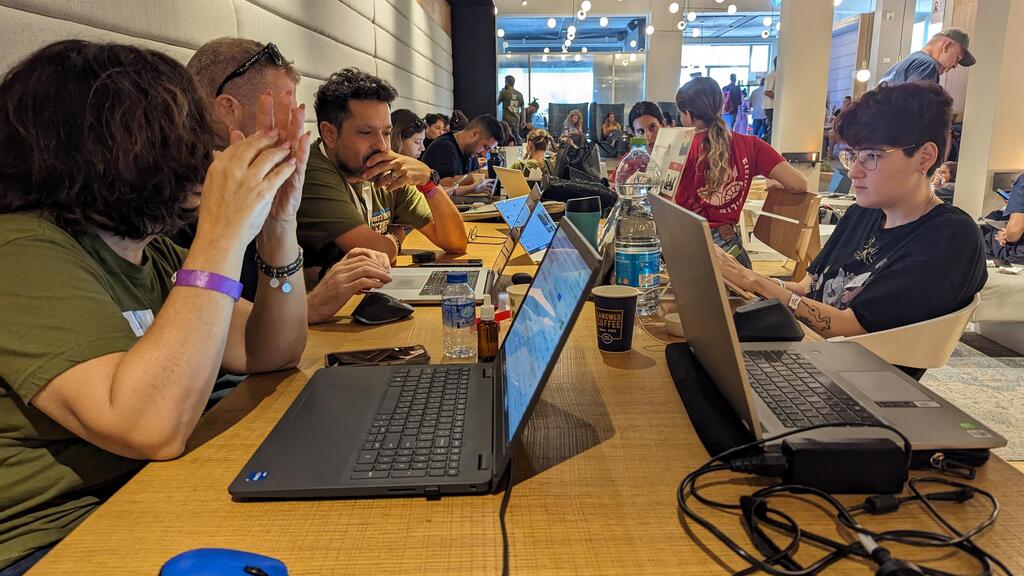
ISRAEL AT WAR
Israeli internet use surged 35% during the first week of the Gaza conflict
According to data published by Bezeq, in the first week of the war, the average internet consumption per household in Israel jumped by about 35%, and from the second week, an increase of more than 18% was recorded compared to pre-war times.
In the initial week of the Gaza conflict, Israeli citizens experienced a notable surge in internet consumption, witnessing a 35% increase. As the conflict progressed into its second week, a more moderate uptick of 18% was recorded compared to pre-war norms. The predominant contributor to this heightened internet activity was identified as the increased usage of social media networks. During the conflict, individuals spent an average of 297 minutes per day on social media, a substantial rise from the 206 minutes recorded during typical days of civilian life. These findings were disclosed today by the Israeli communications company, Bezeq.
According to the report, during the first week of the war, the average internet consumption per household in Israel surged by approximately 35%, escalating from 15.9 gigabytes to 20.7 gigabytes per day. As the conflict entered its second week, the average internet consumption per household stabilized at around 18.8 gigabytes per day, marking an increase of over 18% compared to normal days.
1 View gallery


The war room of the volunteer organization "Brothers in Arms" in Tel Aviv
(Photo: Elihay Vidal)
The city of Kiryat Gat showed the most significant increase at 34%, followed by Katzrin, Ra'anana, and Ramat Hasharon, where a 30% increase was recorded. In the three largest cities, more moderate increases were noted: Jerusalem with 24%, Tel Aviv with 19%, and Haifa with a 14% uptick compared to the norm.
In cities like Sderot, Metula, and Kiryat Shmona, there was a substantial decrease of approximately 80% in the volume of internet usage. This decline is attributed to the fact that most of the residents of these border cities were forced to evacuate due to threats from Hamas in Gaza in the south and Hezbollah in the north on the border with Lebanon.
In the initial week of the conflict, a significant uptick in internet usage among Israeli citizens was predominantly fueled by a 44% surge in the use of social media networks, escalating from an average of 206 minutes per day during peacetime to 297 minutes amid the war. This notable increase is attributed to the dual role of social media sites acting as conduits for uncensored content dissemination while also providing real-time updates from users' immediate environments.
Leading the surge was Facebook, experiencing a remarkable 60% spike in user engagement during the conflict's inaugural week. Although maintaining heightened activity in the subsequent weeks, the increase slightly tempered. In contrast, platforms like Instagram and TikTok, which initially experienced a surge in the conflict's early stages, returned to usage levels akin to pre-war times.
Telegram, emerging as a major information channel amid the conflict, witnessed a twofold surge in the number of devices accessing the application. Concurrently, there was a 50% increase in the average daily visits, signifying its role as a vital platform for disseminating information on the unfolding events and atrocities.
According to a Bezeq report, the volume of television viewing (on the internet) has doubled since the outbreak of the war. The average viewing in the first week ranged from 7 to 12 hours a day; thereafter, it dropped to 4-9 hours a day, still a higher rate than usual compared to the routine. The field of gaming also contributed to the increase in the average internet consumption per household, recording an increase of about 12%. A significant portion of this increase is likely attributed to the absence of regular school studies throughout Israel during this period.
According to Tali Poleg, Bezeq's VP of Marketing, the drastic and swift shift in consumption habits "required the infrastructure to withstand heavy loads, simultaneously necessitating swift fault repairs, sometimes in actual combat zones. The utilization of emergency communication services, social networks, and internet news broadcasts has peaked and become critical for Israeli consumers."
A Bezeq report also highlights an increase in the number of devices connected to home internet in the last month. Since the outbreak of the war, there has been a 47% increase in the connection of game consoles, a 43% increase in the connection of computers, a 12% increase in the connection of tablets, a 9% increase in the connection of streamers, and a 6% increase in the connection of new televisions.
The report's data was collected from Bezeq systems on customers utilizing the company's internet and telephony services. The data is statistical and not personally identifiable. The figures represent an average usage over the three months preceding the war compared to usage in the first month following the war.













